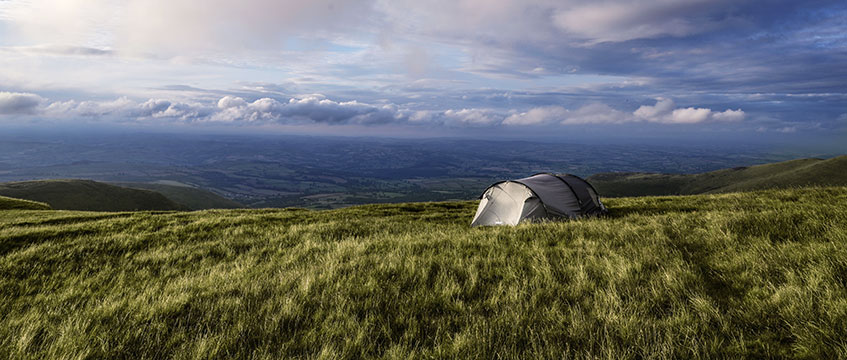Supreme Court hears Dartmoor wild camping appeal
The Supreme Court in London is today hearing a legal challenge to the practice of wild camping on the Dartmoor commons in Devon.
The case has been bought by Alexander and Diana Darwall, Dartmoor commoners who own and farm land on the moors. They are challenging the interpretation of a 1985 law which, they argue, has been misapplied.
The legislation in question is the Dartmoor Commons Act 1985, which allows “open air recreation” on the land, echoing a long-held custom of giving walkers and horse riders open access to the land. Since then, the Act has been interpreted as allowing people to camp on the land without the landowner’s permission.
The Supreme Court in London is today hearing a legal challenge to the practice of wild camping on the Dartmoor commons in Devon.
The case has been bought by Alexander and Diana Darwall, Dartmoor commoners who own and farm land on the moors. They are challenging the interpretation of a 1985 law which, they argue, has been misapplied.
The legislation in question is the Dartmoor Commons Act 1985, which allows “open air recreation” on the land, echoing a long-held custom of giving walkers and horse riders open access to the land. Since then, the Act has been interpreted as allowing people to camp on the land without the landowner’s permission.
Lawyers for the Darwalls argue that this is an over-interpretation as wild camping does not count as “open air recreation”.
The case has flip-flopped though the courts. In January last year, the Darwalls won in the High Court ([2023] EWHC 35 (Ch); [2023] PLSCS 11). But wild camping didn’t stay banned for long. In July, the Court of Appeal disagreed and overturned the decision ([2023] EWCA Civ 927; [2023] EGLR 33).
Today, the Darwalls’ lawyer, Timothy Morshead KC, asked the judges of the Supreme Court to reimpose the ban. He argued that, when the Act was being drafted, it was not intended to allow unfettered camping without permission.
While the Act did give ramblers and riders a right to roam, “the landowners were never asked to consent to a wider amount of access than that”, he said. And the legislation should not be taken to allow “barbecuing, lighting fires and leaving litter”.
In response, Richard Honey KC for the Dartmoor National Park Authority said that the 1985 Act regulated the long-standing use of the Dartmoor commons, “which included camping”.
He said that the camping permitted is “responsible camping on ‘leave no trace’ principles” in a small tent, waterproof sleeping bag, bivvy bag or even a hammock. Existing bylaws prohibit people from camping in larger tents, camper vans and caravans.
In a statement issued before the hearing, Alexander Darwall said the moorland needed protection. “No one is suggesting restricting public access to walk or ride in the national park,” he said. “But the extent of recreational activity is an important issue if we want to preserve the open moor for the long term. Sadly, many campers do not observe the ‘leave no trace’ principle. Campfires on dry ground are dangerous.
“They also involve habitat destruction, as people break or saw branches from trees and burn them. In addition, campers often leave litter and human excrement, which land managers are forced to clear up after them.”
Photo © Jamie Millard/Pixabay











